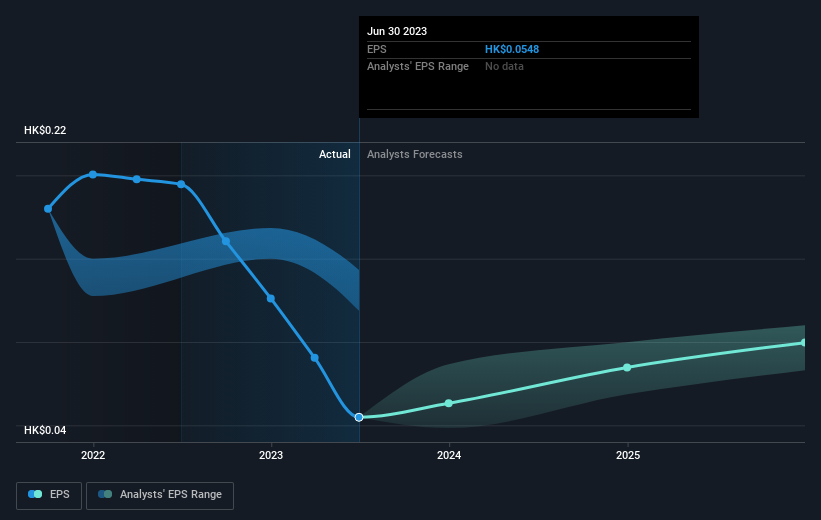Investors in Hutchison Port Holdings Trust (SGX:NS8U) have seen returns of 4.0% over the past five years
Ideally, your overall portfolio should beat the market average. But even in a market-beating portfolio, some stocks will lag the market. While the Hutchison Port Holdings Trust (SGX:NS8U) share price is down 31% over half a decade, the total return to shareholders (which includes dividends) was 4.0%. That's better than the market which declined 1.8% over the same time. Shareholders have had an even rougher run lately, with the share price down 13% in the last 90 days.
Since shareholders are down over the longer term, lets look at the underlying fundamentals over the that time and see if they've been consistent with returns.
View our latest analysis for Hutchison Port Holdings Trust
To paraphrase Benjamin Graham: Over the short term the market is a voting machine, but over the long term it's a weighing machine. One flawed but reasonable way to assess how sentiment around a company has changed is to compare the earnings per share (EPS) with the share price.
During the five years over which the share price declined, Hutchison Port Holdings Trust's earnings per share (EPS) dropped by 10% each year. The share price decline of 7% per year isn't as bad as the EPS decline. So the market may previously have expected a drop, or else it expects the situation will improve.
The image below shows how EPS has tracked over time (if you click on the image you can see greater detail).
Before buying or selling a stock, we always recommend a close examination of historic growth trends, available here.
What About Dividends?
As well as measuring the share price return, investors should also consider the total shareholder return (TSR). The TSR incorporates the value of any spin-offs or discounted capital raisings, along with any dividends, based on the assumption that the dividends are reinvested. It's fair to say that the TSR gives a more complete picture for stocks that pay a dividend. We note that for Hutchison Port Holdings Trust the TSR over the last 5 years was 4.0%, which is better than the share price return mentioned above. This is largely a result of its dividend payments!
A Different Perspective
Hutchison Port Holdings Trust shareholders are up 0.9% for the year (even including dividends). Unfortunately this falls short of the market return. The silver lining is that the gain was actually better than the average annual return of 0.8% per year over five year. This suggests the company might be improving over time. It's always interesting to track share price performance over the longer term. But to understand Hutchison Port Holdings Trust better, we need to consider many other factors. Consider for instance, the ever-present spectre of investment risk. We've identified 3 warning signs with Hutchison Port Holdings Trust (at least 1 which can't be ignored) , and understanding them should be part of your investment process.
Of course Hutchison Port Holdings Trust may not be the best stock to buy. So you may wish to see this free collection of growth stocks.
Please note, the market returns quoted in this article reflect the market weighted average returns of stocks that currently trade on Singaporean exchanges.
Have feedback on this article? Concerned about the content? Get in touch with us directly. Alternatively, email editorial-team (at) simplywallst.com.
This article by Simply Wall St is general in nature. We provide commentary based on historical data and analyst forecasts only using an unbiased methodology and our articles are not intended to be financial advice. It does not constitute a recommendation to buy or sell any stock, and does not take account of your objectives, or your financial situation. We aim to bring you long-term focused analysis driven by fundamental data. Note that our analysis may not factor in the latest price-sensitive company announcements or qualitative material. Simply Wall St has no position in any stocks mentioned.

 Yahoo Finance
Yahoo Finance 
